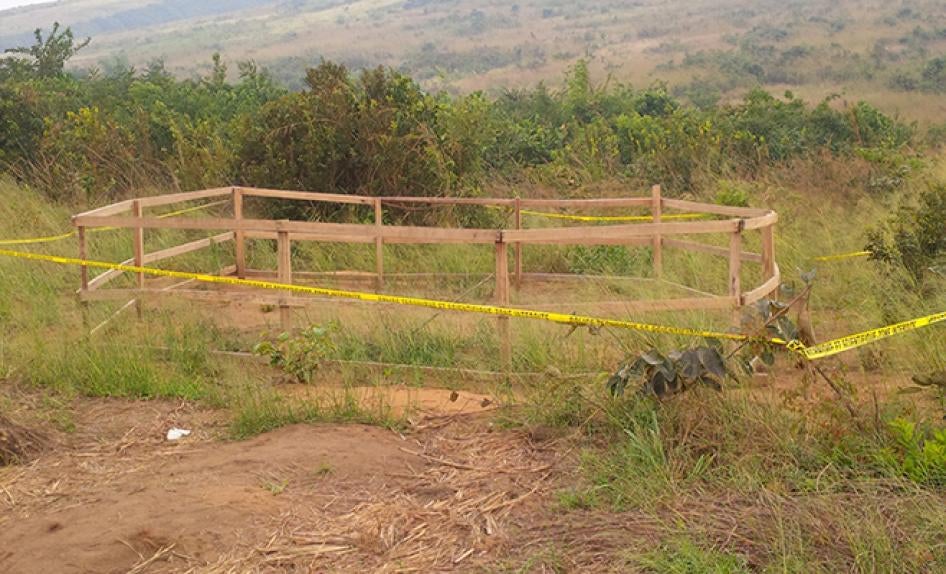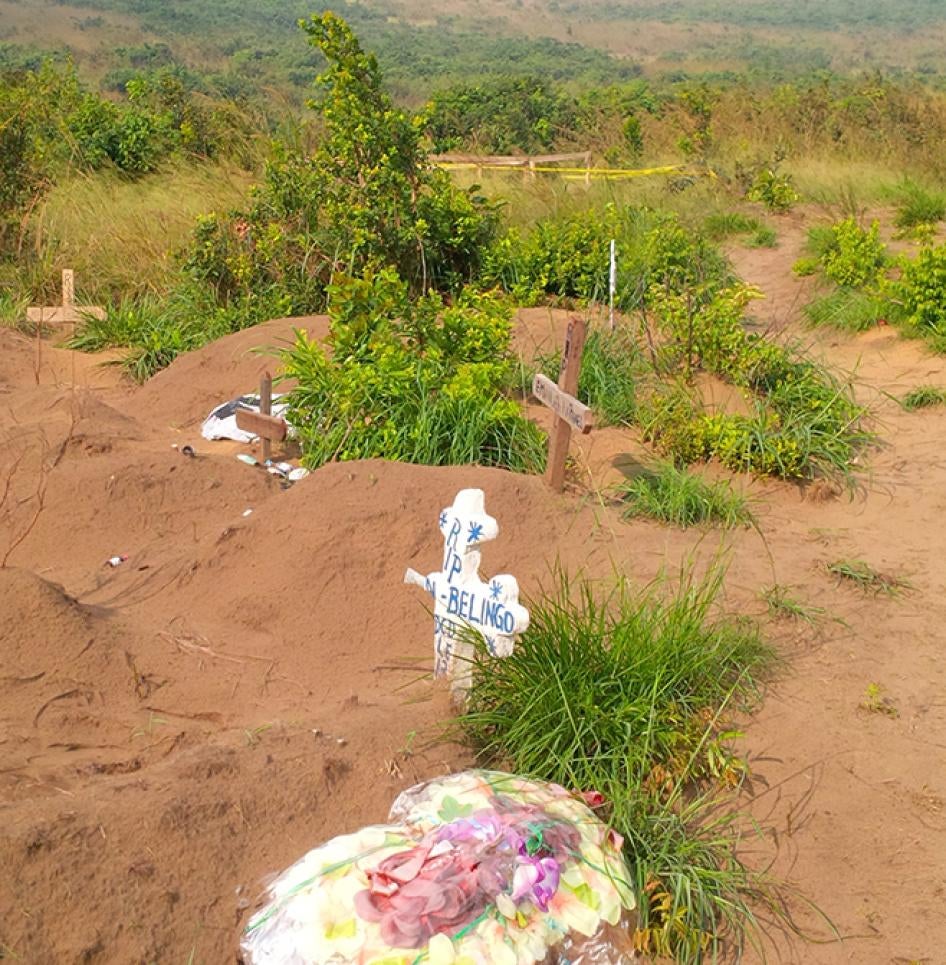On the night of March 18-19, 2015, security forces in the Democratic Republic of Congo secretly dug a mass grave on the edge of a cemetery near the capital, Kinshasa, and dumped several hundred bodies inside. The next day, local residents of the municipality, Maluku, reported the stench of dead bodies and the soldiers and mysterious truck they had seen in the middle of the night.
Congolese government officials soon publicly admitted that 421 bodies had indeed been interred at the site that night, but said it was a “normal procedure” and that the bodies included relatives of poor families who could not afford burial, unidentified bodies, and stillborn babies. Local Red Cross officials and employees at Kinshasa’s hospitals and morgues, who are usually involved in such burials, strongly contested that claim.
Many Kinshasa residents were outraged. Members of parliament demanded answers about who was buried in Maluku and why security forces buried them in the dark of night. Threats against a resident who had witnessed the burial, and the suspicious death of Claude Kakese, a nurse who had been in charge of one of Kinshasa’s morgues, heightened tensions.
Many family members of victims who had been summarily executed or forcibly disappeared by Congo’s security forces during protests in January 2015, and in “Operation Likofi,” an earlier police operation against gang crime, immediately suspected that their loved ones were among those buried in Maluku. In both operations, security forces took away the bodies of some of those killed and never returned them to their families for burial. On June 5, the families of 34 victims filed a public complaint with Congo’s national prosecutor demanding justice and the exhumation of the Maluku mass grave.
Congo’s justice and interior ministers said that if there were any doubts about who was buried at the site, the bodies would be exhumed. Yet despite numerous calls from members of parliament, rights groups, the United Nations, the European Union, and others, no decision was made to open up the grave.
A security force officer later told Human Rights Watch that members of the Republican Guard presidential security were involved in the burial, and that the bodies included victims killed during Operation Likofi and the January 2015 demonstrations. He said that the nurse, Kakese, had become an “inconvenient witness,” and that a Republican Guard sergeant had received the order to execute him.
“I refuse to accept that [my son might be buried in the Maluku mass grave], because I still have hope to find my child one day,” the mother of Dane, who was taken away by the police during Operation Likofi, told us this week. “But to know for sure, the authorities need to order an exhumation of the bodies and carry out DNA.”
Crispin, a member of the Union for the Congolese Nation (UNC) political party, was arrested during a demonstration on January 19, 2015, and taken to an unknown destination. More than two years later, his older brother still doesn’t know whether Crispin is alive. “The authorities must at least exhume the bodies buried in the Maluku mass grave so we would know whether our brother was buried there or not,” his older brother told us. “And if he’s alive, they should tell us where he is.”
Families of others killed by security forces more recently have also had trouble organizing burials, including for victims of the September and December 2016 repression. Fortunat was killed in Kinshasa on September 19 by men in Congolese army uniforms. The Red Cross took his body to a hospital morgue, but it later disappeared. “Fortunat’s mother sometimes passes out because the body of her son was never found,” Fortunat’s uncle told us. “How can soldiers kill someone and then deprive his family of seeing his body or organizing a funeral?”
Congolese authorities should give victims’ families the answers and the justice they deserve. The authorities, with the help of international forensics experts, should exhume the dead in Maluku and reveal their identities. Then they can bring those responsible for summary executions and enforced disappearances to justice.










